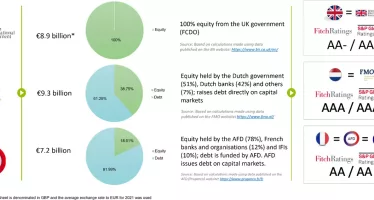Christian Mumenthaler, CEO of Swiss Re: Insuring Future Growth

CEO: Christian Mumenthaler
The new frontier of insurance runs through cyberspace. Hacking has professionalised and is no longer the preserve of lone bespectacled teenagers with more brains than brawn trying to prove the point they failed to make during recess. Today’s hackers are organised into clandestine, yet professionally-run, businesses and have targets and quotas to meet. The threat from cyberspace has become so large and immediate that the insurance industry is asking governments to provide a backstop in case of large and sustained attacks.
Christian Mumenthaler of Swiss Re, based in Zurich and the world’s second-largest reinsurance company, argues that cyber attacks are no different from terror strikes and warrant a similar response.” So far, the CEO has found no government willing to engage and talk about the topic. Mr Mumenthaler worries about the accumulation of risk, a concept used by insurers to describe a large number of policyholders exposed to the same risk at the same time – potentially causing a massive avalanche of claims that could undermine the industry’s ability to respond.
“We thrive on risk diversification; risk accumulation is the enemy and leads to uninsurability which, in turn, stifles our clients’ businesses – and our own.” The number of cyber security breaches reported by companies worldwide shot up by almost 28% last year. The average cost per incident rose to $3.6m (€2.9m / £2.6m).
Mr Mumenthaler notes that hackers increasingly adopt destructive techniques that deprive businesses of their data: “Ransomware attacks are the start of something possibly even more sinister such as the hijacking of industrial control systems or the insertion of malicious data with the intention to corrupt company records and make them unusable.”
In charge of Swiss Re since July 2016, Mr Mumenthaler is determined to leverage Swiss Re’s deep knowledge of specific segments of the insurance market – natural catastrophes, nuclear incidents, biometrics, and pandemics, amongst others – to take the company forwards. “We are transitioning into a risk knowledge company that mainly invests in risk pools with long-term growth potential.”
In 2016, the company took a severe hit with its exposure to the wildfires in Alberta’s (Canada) oil patch which displaced around 88,000 inhabitants of Fort McMurray and destroyed more than 2,400 homes and other buildings. The fires scorched the town and spread from Northern Alberta into neighbouring Saskatchewan, impacting mining operations in the Athabasca oil sands and interrupting supplies. The final damage amounted to C$10bn (€6.2bn / £5.5bn). Swiss Re carried around 80% of the losses sustained.
The company was praised for its quick response to the emergency in Canada but saw its net income fall to Sfr 315m (€269m / £237m) from Sfr 3.4bn (€2.9bn / £2.6bn) in 2016. Swiss Re is in preliminary talks with Japan’s SoftBank which mulls acquiring a sizeable minority stake in the company – an idea that enjoys the strong support of the reinsurer’s CEO.
The industry still has plenty room for growth. Mr Mumenthaler is particularly eager to tap into the underdeveloped insurance markets of emerging economies where penetration is still low: “We are keen to help close the protection gap in high-growth markets where insurance coverage is simply not yet available or too expensive. Swiss Re coordinates with governments and local institutions to insure people and businesses. As a result, insurance penetration is steadily improving.” Swiss Re maintains a global network with offices in 25 countries.
The Swiss executive also seeks to remedy persistent gaps in industrialised countries where insurance is both available and affordable but people still do not take out coverage. In California, for example, only about 12% of home owners have bought coverage against earthquakes. Surveys have detected a widespread conviction that earthquake insurance is prohibitively expense. Others expect the state to help in case of a major quake. “Interestingly, those surveys also show that people are actually willing to pay considerably more for insurance coverage than the actual price of the product. In other words, for insurers California is a major growth market.”
Looking to make the world more resilient, Mr Mumenthaler would like to reshape his company into a repository of relevant knowledge – a purveyor of data that powers the future: “When people hear of Swiss Re, I’d like them to see a long-term thinker and not just an ordinary reinsurance company.”
You may have an interest in also reading…
OECD: The Funding Models of Development Finance Institutions
The drum beat of reform is increasing for the development system and particularly for the Multilateral Development Banks (MDBs). While
Sophie in ‘t Veld: Calling the European Council to Order
Dutch MEP Sophie in ‘t Veld believes that the freedom of every person to hold their own thoughts and opinions
IFC’s Alfonso García Mora: On the Frontlines of Climate Change and War
To mitigate the harmful effects of climate change requires the mobilisation of trillions of dollars. IFC Regional Vice-President for Europe,

















































































